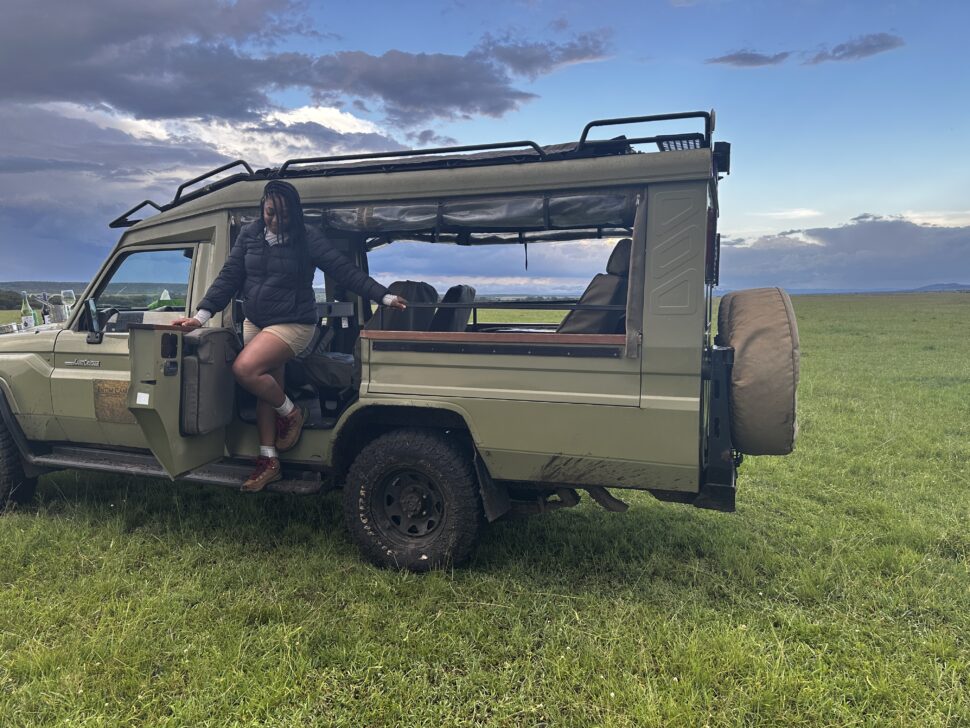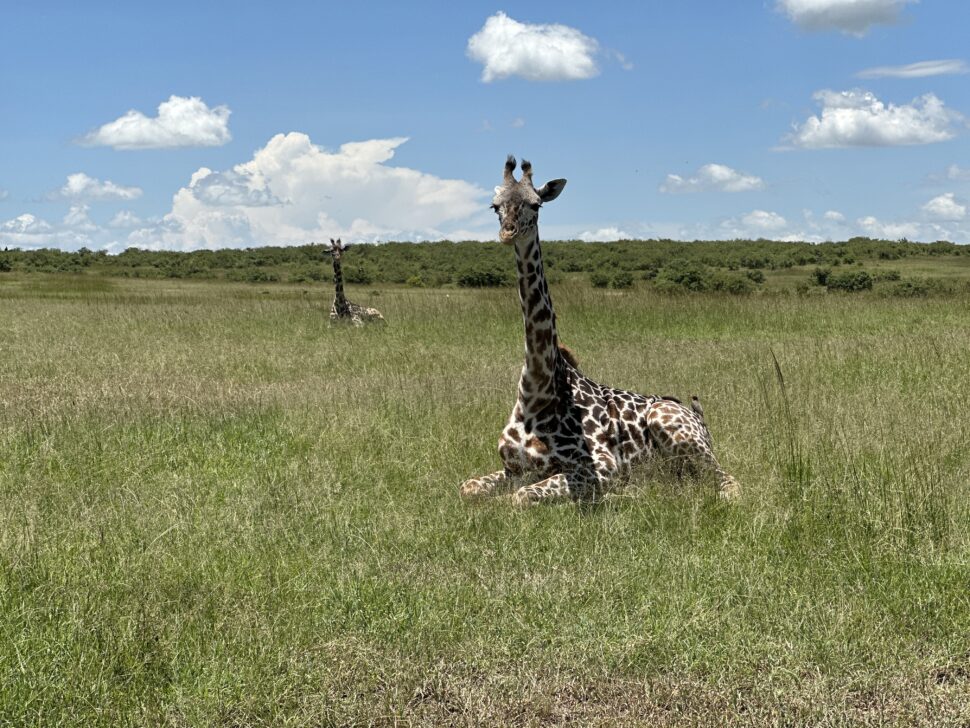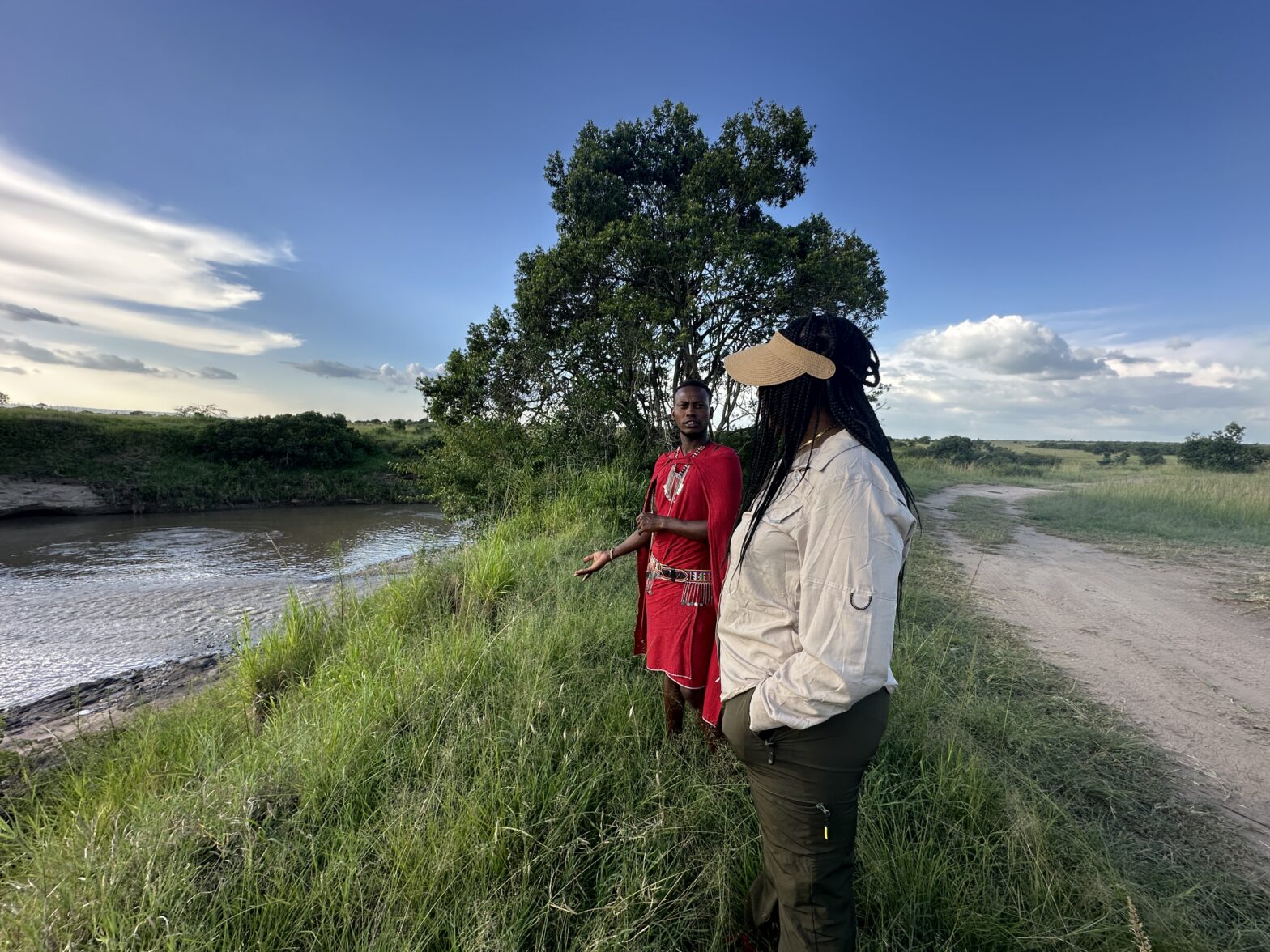Recently, during a trip to Kenya’s Maasai Mara region, a friend and I noticed we were the only Black travelers on our game drives. This was shocking, considering Kenya is a predominantly Black country. This realization led me to investigate the number of Black-owned safaris.
In Africa, the tourism industry generates $39 billion, with safaris accounting for over $12 billion in annual revenues in countries such as Kenya, Tanzania, South Africa, Botswana, and Zambia. However, much like my experience in the Maasai Mara, I discovered that there are not many Black-owned safaris. Research from the Berkeley Economic Review shows that white men dominate the safari industry. According to The African Travel and Tourism Association, only 15% of its more than 600 members are Black owners.
Finding a Black-owned safari on the continent is challenging, but not impossible. Here are several Black-owned safaris to support during your visit.

Black-owned Safaris in Africa
African Bush Camps – Various Locations
Founded by Zimbabwean guide Beks Ndlovu in 2006, African Bush Camps immerses guests in some of the world’s most incredible wild spaces. The camp has locations in Botswana, Zambia, and Zimbabwe. Ndlovu is dedicated to hiring local guides, giving travelers the opportunity to interact with amazing wildlife.
Bushman Plains Camp – Botswana
Choosing Bushman Plains Camp means becoming part of history. The founders claim it is Botswana’s first Bushman-owned safari camp. Located in the heart of the Okavango Delta, the Bushmen, or San people, are among the oldest cultures on earth. They are some of the earliest hunter-gatherers in Southern Africa, known for tracking lions and utilizing the meat from their kills. At the camp, guides honor their hunter-gatherer heritage.
Desert & Delta Safaris
Desert & Delta Safaris is one of Botswana’s most successful safari operators, with more than nine safari properties. One significant factor in its success is that it’s one of few African Safaris run by the local community. According to a spokesperson for the property, it’s a publicly traded company on Botswana’s stock exchange, which ensures that the property is locally owned.
The company is not fully Black-owned, but is Black-led. Another unique aspect of Desert & Delta is that the guiding team consists entirely of women at Chobe Game Lodge.

Mara Napa Luxury Camps in Kenya
This is the only Maasai-owned luxury camp on the Maasai Mara. It’s also the first luxury resort in Kenya’s Maasai Mara to channel all of its profits back into the local community. Managed by a community-owned trust, Mara Napa Camps & Conservation Center is on a mission to ensure wildlife conservation, cultural preservation, and community empowerment. The camp has a restaurant on site, tailored meals, and free laundry service.
Njozi Camp – Tanzania
Deo Magoye founded Njozi Camp in 2018. In Swahili, the word Njozi translates to dream — a word fitting for travelers embarking on a trip of a lifetime. The camp is guide-owned and operated. What travelers will like is the flexibility. There aren’t scheduled meals here like most safaris because the team wants to ensure guests aren’t missing the animal action. Njozi Camp follows the Great Migration from the Ndutu region of the southern Serengeti to the Mara River crossings in the northern Serengeti.
Safari GOATS in Tanzania
Eddy Billy is the owner of Safari GOATS, a proudly Tanzanian and authentically African safari company that provides breathtaking and immersive experiences while valuing sustainability. The team values conservation and sustainable eco-tourism, employs highly trained indigenous guides, has unscripted custom itineraries, and more.
Safari GOATS offers itineraries for couples and families to L.Manyara, Ngorongoro, Serengeti, Tarangire, Northern Tanzania, and many other destinations.
Tangulia Mara Camp – Kenya
Tangulia Mara Camp is the only camp in Kenya’s Maasai Mara region that is 100% locally owned and operated. Camp directors Jackson Looseyia and Dominic Nchoe, both born and raised in the area, provide an authentic experience in the Mara. The camp is located in the middle of the bush and offers breathtaking views of the wildlife.
Zebra Plains – Kenya
As Travel Noire previously reported, Zebra Plains is owned by Alfred Korir, a local who has more than a decade of experience in the industry. He has also made it his mission to give back to the local community, as 90% of the camp’s employees are from the indigenous tribe.
Black-Owned Tour Companies
Motherland Adventures
Motherland Kenya has you covered for luxury solo, honeymoon, or group experiences. The company is a team of tour planners committed to curating and executing out-of-the-box itineraries for guests. With a mission to do the “heavy lifting” in planning for travelers to have a seamless experience, Motherland Kenya provides authentic adventures in East Africa.
Ndifo Safari
Ndifo Safari is Tanzanian-owned and operated. The company offers itineraries that take guests through the Serengeti and The Great Migration of Wildebeest, Ngorongoro Crater, Tarangire National Park, Lake Manyara, Olduvai Gorge, and Mount Kilimanjaro. Beyond Tanzania, the Ndifo Safari team has partners in Rwanda, Uganda, and Kenya, making all of East Africa available to those with time to explore.
Samton Safaris
The staff at Samton Safaris provides quality service to customers looking for unforgettable experiences throughout Kenya. Samton Safaris offers itineraries that include Masai Mara, Amboseli, and Mount Kilimanjaro. Tours vary anywhere between three and eight days throughout Kenya.
Sarafika Tours in Tanzania
Based in Arusha, Jasmine Lommert founded Sarafika Tours. Sarafika provides unforgettable and personalized safari experiences to individuals, couples, families, or groups. As Tanzania grapples with persistent poverty, Lommert has made her mission to combat this through community-centric tourism, sustainability, and equitable compensation for staff.
Some adventures guests can choose from include a nine-day great migration safari, a four-day Tanzania express safari, a Tarangire National Park one-day tour, and more.
